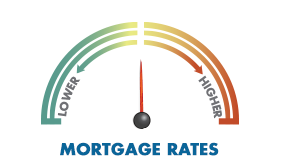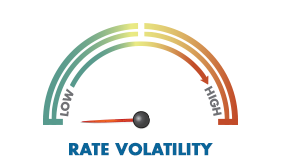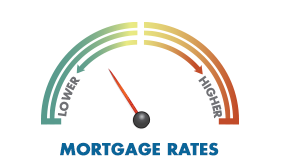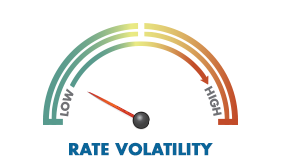Please enjoy this quick update on what happened this week in the housing and financial markets.
 Global economic weakness and falling oil prices continue to pressure stocks and support bonds. Bond market improvement supports lower mortgage rates.
Global economic weakness and falling oil prices continue to pressure stocks and support bonds. Bond market improvement supports lower mortgage rates.
 Jobless claims rose to a six-month high last week but were still below the 300,000 mark. Some suggest this could be a loss of momentum for the labor market.
Jobless claims rose to a six-month high last week but were still below the 300,000 mark. Some suggest this could be a loss of momentum for the labor market.
 Weakness in stocks and recent economic reports will likely be considered at the Fed's meeting next week. It is expected the Fed will leave policy rates unchanged.
Weakness in stocks and recent economic reports will likely be considered at the Fed's meeting next week. It is expected the Fed will leave policy rates unchanged.
 Home builders expect new home sales to continue to increase in 2016. New home sales rose almost 15% in 2015, peaking in November.
Home builders expect new home sales to continue to increase in 2016. New home sales rose almost 15% in 2015, peaking in November.
 Housing starts were down slightly in December, but were still strong. It was the 9th straight month that starts were above 1 million units, the longest run since 2007.
Housing starts were down slightly in December, but were still strong. It was the 9th straight month that starts were above 1 million units, the longest run since 2007.
 Building permits were down slightly after two months of hefty gains. However, permits for construction of single-family homes rose 1.8%.
Building permits were down slightly after two months of hefty gains. However, permits for construction of single-family homes rose 1.8%.
A man walks into a bar and orders a drink. Then he notices there are pieces of meat nailed to the ceiling of the bar, so he asks the barman what they are for. The barman replies, "If you can jump up and pull one of them down, you get free beer all night. If you fail, you have to pay the bar $100. Do you want to have a go?"
The man thinks about it for a minute before saying, "Nah, the steaks are too high!"
Rate movements and volatility are based on published, aggregate national averages and measured from the previous to the most recent midweek daily reporting period. These rate trends can differ from our own and are subject to change at any time.
Rodney Long
Mortgage Investors Group
Loan Officer Assistant
NMLS #411959; TN Lic #126825; GA Lic #47508
(423) 899-2887 x 303
rodney.long@migonline.com
www.migonline.com/rodney.long
Terry Barnette
REALTOR, Broker, ABR, SFR, BPOR, e-Pro
Crye-Leike REALTORS
Office: 423-473-9545x217
Direct/Text: 423-463-0024
TheBarnetteTeam.com
KM4HDV
licensed in Tennessee












